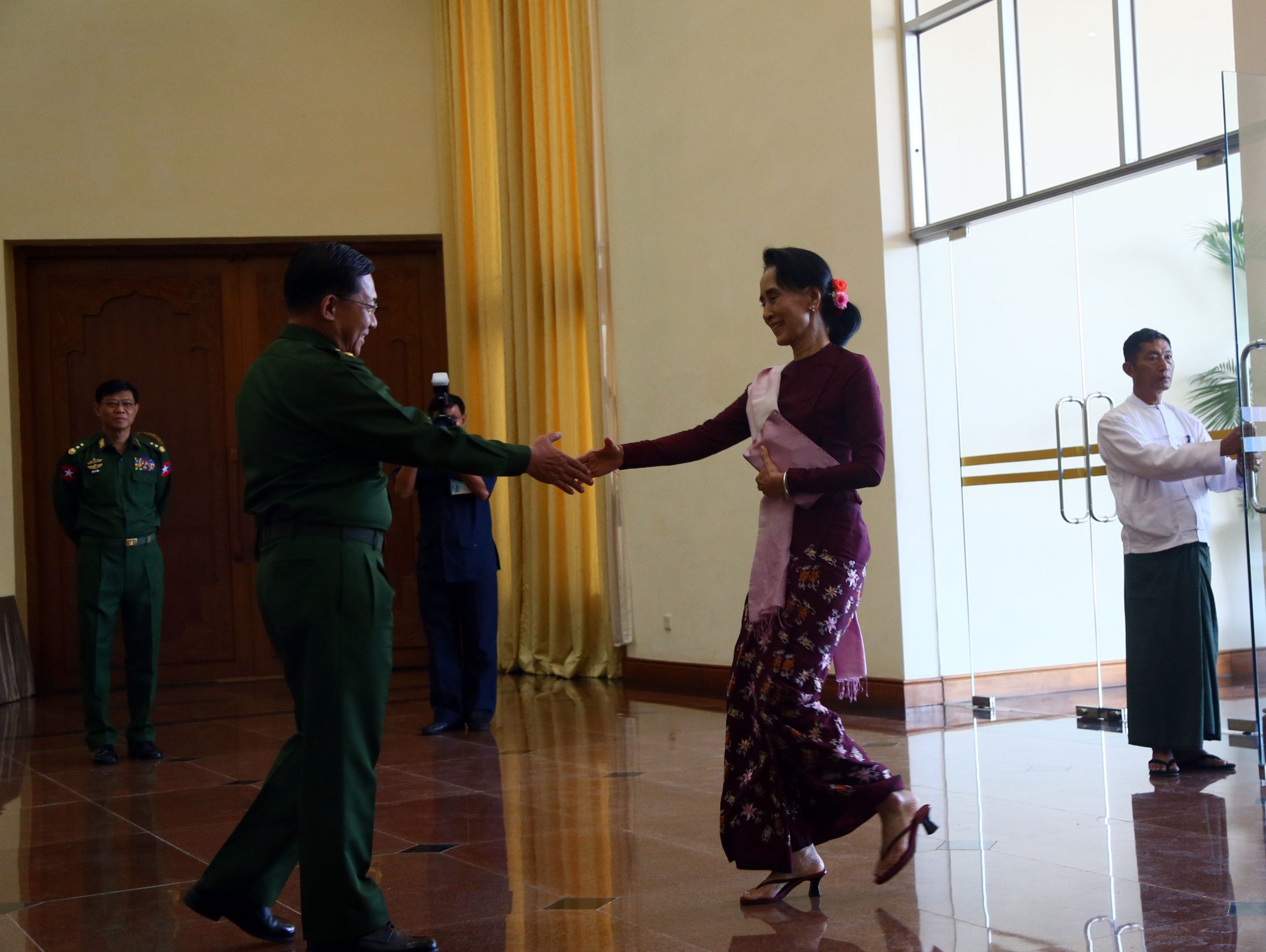When leaders of Aung San Suu Kyi’s National League for Democracy huddled this month to discuss the transfer of power in Burma, they quickly reached decisions on who from the party should take the key posts in the next parliament.
But as attention turned to a candidate from the junta-linked Union Solidarity and Development Party (USDP), a heated argument erupted over his track record and suitability for office, a senior NLD official who was present at the meeting said.
The issue of how far to go in reaching out to former foes from nearly half a century of military rule may prove one of the first faultlines to emerge within the NLD, with the potential to threaten or even derail Suu Kyi’s ambitious agenda.
“Some rank-and-file members are worried and not happy about the NLD working closely with the military. They never kept their promises so they don’t trust the army,” said Aung Myo, a mid-ranking NLD member.
Eventually NLD leaders agreed at the early January meeting to offer the posts of deputy parliament speakers to Ti Khun Myat from the USDP and Aye Thar Aung from Arakan National Party (ANP), an ethnic party from Burma‘s restive Arakan State.
The nominations were made as a token of national reconciliation as Suu Kyi’s party prepares for office after winning about 80 percent of the elected seats in parliament at a historic general election late last year.
That the nomination provoked such heated debate underscores a growing sense of unease among some party members at the speed with which Suu Kyi has sought to build ties with powerful army chief Min Aung Hlaing and former junta leader Than Shwe.
“Breaking down the distrust and convincing everybody to work together represents the single biggest challenge for the incoming administration,” said Myint U, an independent consultant and expert on Burmese bureaucracy.
“Failure here may slow down or even stop reforms and could cost the country billions of dollars in lost investment.”
“Grassroots don’t like them”
The NLD, which will take office around late March after a drawn-out transition, is a broad church of views united by the shared experience of the decades-long struggle for democracy and held together by Suu Kyi’s charismatic leadership.
Many members, including the Nobel peace laureate Suu Kyi, suffered years of persecution and imprisonment by the junta that had ruled Burma for 49 years until a semi-civilian government took power in 2011.
“There’s a history, a past that is hard to forget for many people,” said Lin Htoo Maung, a sales executive at a Rangoon-based bank.
Suu Kyi is barred from becoming president by the 2008 Constitution, which experts say was drafted by the military to entrench its influence on politics.
The charter also gives her little choice but to engage with the military, despite her huge election win.
The army controls a quarter of the seats in parliament — giving it a constitutional veto — a large number of seats at the security council and three security ministries: defence, border affairs and home affairs.
At the closed-door leadership meeting, it was also agreed to give the powerful post of the lower house speaker to Win Myint, one of the closest party acolytes of Suu Kyi, said the NLD official present at the meeting.
Another NLD leader familiar with the meeting told Reuters that, while Suu Kyi was firmly in charge and led most decisions, the mood among party grassroots was already having an influence on the speed and depth of rapprochement.
“We are worried, or concerned that our people have little or no experience in actual governance,” the NLD leader said, explaining why the party had been discussing who from the outgoing administration might be retained.
“The majority of the cabinet will be NLD. But there will be some technocrats from ethnic parties and other parties,” he said. “It would be difficult for us to keep any current ministers. The rank-and-file, the party grassroots don’t like them.”
Both NLD leaders, who belong to the party’s 15-member Central Executive Committee, spoke to Reuters on condition of anonymity.
Bitter legacy
One of the areas that arouses most bitterness in dealing with the legacy of junta-rule would likely be land grabs that the military and army-linked enterprises were accused of by rights activists, said Win Min, who runs the NLD office in southern Rangoon.
“They tortured villagers, grabbed the land and forced them to move out by setting crops on fire,” said a rank-and-file Rangoon-based NLD member who did not want to be identified out of fear of retribution. “I’m not saying that our senior members are making the wrong move, but I think we need to be careful while working with them.”
No one from the military or USDP was available for comment.
[related]
To be sure, many former political prisoners and the top echelons of the party support Suu Kyi’s reconciliatory approach.
Tin Oo, NLD’s “patron” and one of its most deeply respected leaders, told Reuters that the NLD did not want to put any pressure on the military or push for the constitutional amendment immediately.
“We will agree to anything that would make them feel comfortable to make the transition stable,” said the 88-year-old, who served as army chief in 1970s.
“We know that we will win in the end anyway, but we don’t think it’s the right time to prioritise it now.”



